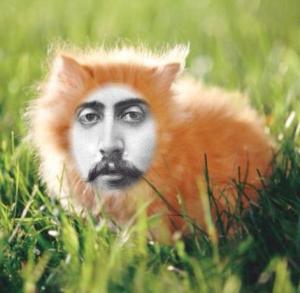[To recap: It has been argued that Thomas Bayes’ 1763 paper on probability may have been constructed as a direct challenge to the work of David Hume. Evidence to support that conclusion comes from the alternate title of Bayes’ essay: A Method of Calculating the Exact Probability of All Conclusions founded on Induction. It has been suggested that use of the word induction points to the work of David Hume. Yet, Hume did not use the word induction and Bayes makes no reference to Hume in his essay. Newton, on the other hand, did use the word induction to describe the process of empirical discovery and Newton was a contemporary of Bayes. It may have been Newton, and not Hume, that Bayes was addressing.]
In my last post [29] (before the FDA warning [30]and my foray into cultural manliness [31]) I hinted that in order to understand Bayes’ use of the word induction you need to understand Newton. Yet we can digress even further: Before Newton lies Francis Bacon. And before Bacon is Aristotle. Each one, in turn, is important to appreciate the idea and intent behind induction — as it was defined during Bayes’ life.
Let’s begin with Aristotle.
In the centuries prior to Bayes’ essay, science and philosophy orbited each other in close proximity. The common thread that tied these methods of understanding together was the philosophy of Aristotle. Aristotle, student of Plato and tutor to Alexander the Great, left behind a fragmented collection of work that had a fundamental impact on medieval and renaissance thought.
Aristotle wrote widely and his intent was to provide a method of understanding not only the nature of physical and moral existence but how to best reconcile a world that seems both constant yet is constantly changing. It is Aristotle’s work that provided the foundation for natural philosophy — the precursor to modern science.
Aristotle attempted to create a full treatise on all aspects of human endeavor and he divided the forms of knowledge or science (episteme) into three categories: the productive, the practical, and the theoretical. Consistent with Aristotle’s belief that all things move toward their ultimate purpose or cause, categories of knowledge were defined by their final product. Productive knowledge was the domain of artisans and involved the creation of things. Practical knowledge fell in the domain of politics and ethics and focused on the social and moral behavior of people. Theoretical knowledge involved the pursuit of truth and pure knowledge — or knowledge for its own sake.
Before Aristotle, Plato argued that what we sense is, at best, a pale reflection of a superordinate reality consisting of pure and perfect forms or ideas. Whereas our sensory reality is reminiscent of this higher plane, it is a debased copy that flickers and changes across time and space. For Plato, a transcendental level of perfect forms allowed us to reconcile the presence of that which is immutable and a material world in constant flux.
Aristotle, however, questioned the explanatory value of a higher layer and saw this construct as potentially unnecessary. Plato had suggested that pure forms were superordinate and therefore could not exist within material things. Aristotle, however, wondered if this was so, then how can we gain any knowledge of pure forms? That is, Plato’s definition of forms provided us with no method of connecting material objects to those forms they seemingly reflect. To Aristotle, forms — in this context — made no logical sense.
Aristotle argued that the substance of things must rest within the object under scrutiny and not, as suggested by Plato, beyond the object. Aristotle advocated an empirical approach to the acquisition of truth, one that begins with information gathered from our senses. Within Aristotle’s perspective, knowledge was not descendent, it was ascendant — it moves from the particular to the universal. We use our experience and reason to infer that which is universal from the datum of our senses.
This process Aristotle defined as induction.
For Aristotle, induction was a necessary step in the scientific process.
- [Note. Aristotle, in Metaphysics, accredited induction to Socrates: “… for two things may be fairly ascribed to Socrates – inductive arguments and universal definition, both of which are concerned with the starting-point of science.” ]
- Aristotle, Smith, J. A., & Ross, W. D. (1908-1952). The works of Aristotle. Translated into English under the editorship of J. A. Smith and W. D. Ross. Oxford: Clarendon Press.
- Anstey, P., & Vanzo, A. (2012). The origins of early modern experimental philosophy. Intellectual History Review, 22, 499-518.


You must be logged in to post a comment.